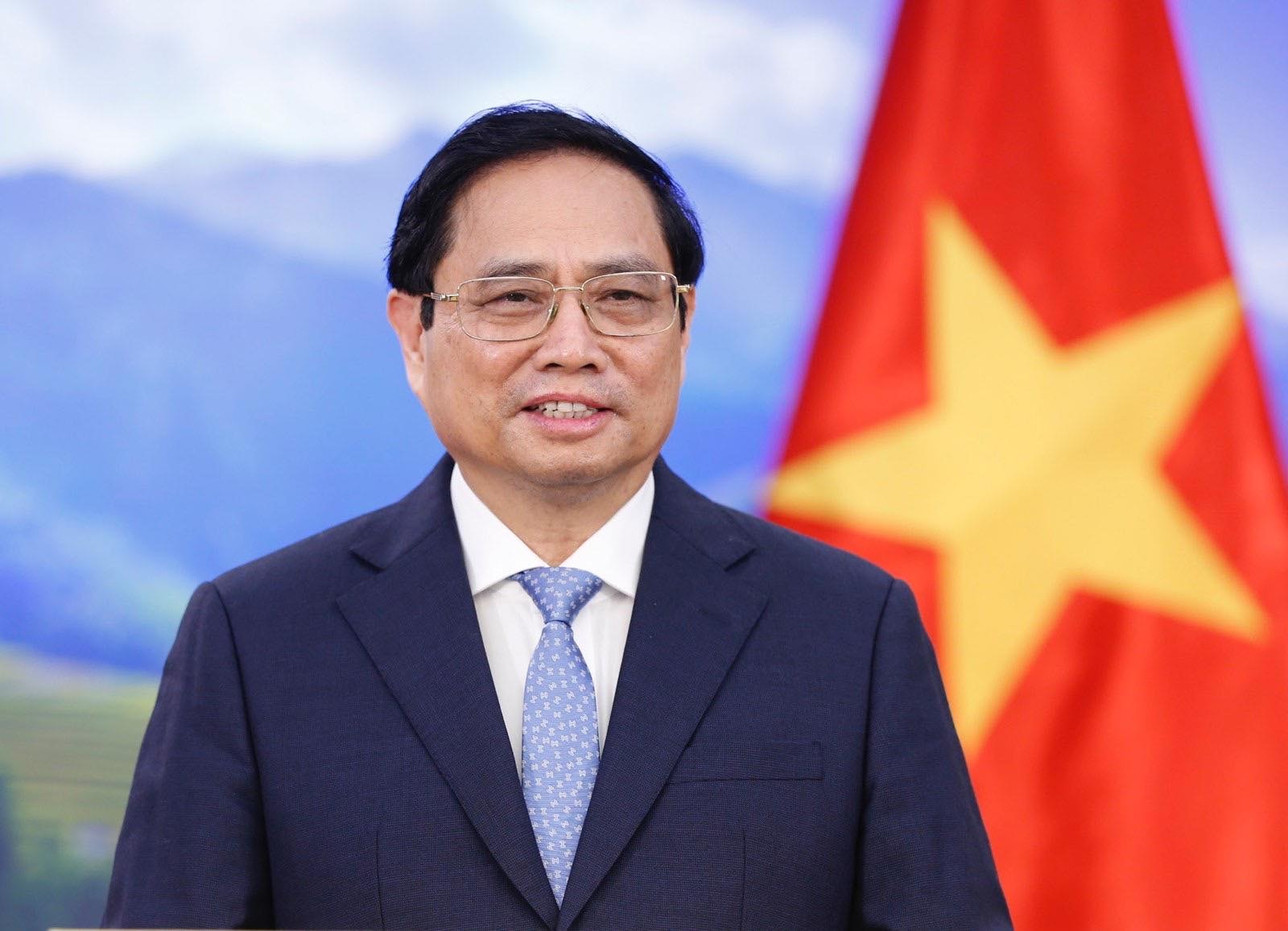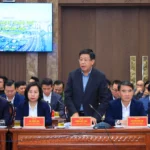On the evening of August 27, the Ministry of Foreign Affairs announced that Prime Minister Phạm Minh Chính will attend the 2025 Shanghai Cooperation Organization (SCO) Summit as a guest of the host country.
At the invitation of the Government of the People’s Republic of China, Prime Minister Phạm Minh Chính of the Socialist Republic of Vietnam will attend the 2025 Shanghai Cooperation Organization (SCO) Summit as a guest of the host country and will conduct work in China from August 31, 2025, to September 1, 2025.
According to the plan, the 2025 SCO Summit will take place from August 31 to September 1 in Tianjin, China, chaired by Chinese President Xi Jinping. This is expected to be the largest summit since the organization’s founding, attracting over 20 heads of state, including UN Secretary-General Antonio Guterres and Russian President Vladimir Putin, creating a new diplomatic landscape.
The agenda is expected to focus on promoting « neighborhood diplomacy, » enhancing political, economic, and security cooperation; it also represents a model of multilateral cooperation that is becoming increasingly prominent amid the tense global geopolitical context.
Prime Minister Phạm Minh Chính’s visit to China also takes place in the context of the two countries commemorating the 75th anniversary of the establishment of diplomatic relations since the beginning of 2025 and continuing to promote high-level exchanges and contacts through various flexible forms.
Regarding trade, Vietnam maintains its position as China’s largest trading partner in ASEAN and China’s fourth-largest trading partner by national criteria (after the United States, Japan, and South Korea). The bilateral trade turnover between Vietnam and China for the whole of 2024 reached $205.2 billion (an increase of 19.3%); of which, Vietnam exported $61.2 billion (a decrease of 0.2%) and imported $144 billion (an increase of 30.2%), resulting in a trade deficit of $82.8 billion (an increase of 67.9%).
In the first 7 months of 2025, the bilateral trade turnover between Vietnam and China reached $136.47 billion (an increase of 21.3%); of which, Vietnam exported $35.02 billion (an increase of 7.1%) and imported $101.4 billion (an increase of 27.1%), resulting in a trade deficit of $66.4 billion (an increase of 41.1%).
Regarding investment, in 2024, China ranked first in the number of new investment projects with 955 projects, accounting for 28.3%; it ranked third in total registered capital with $4.73 billion (after Singapore and South Korea), an increase of 3.1%. In the first 7 months of 2025, China ranked first in the number of new investment projects with 695 projects, accounting for 30.83%; it ranked second in total registered capital with $2.27 billion (after Singapore), an increase of 41.6%.
Regarding tourism, in 2024, Vietnam welcomed 3.74 million Chinese visitors, an increase of 114% compared to 2023, accounting for 21.26% of the total international visitors to Vietnam, ranking second after South Korea. In the first 7 months of 2025, Vietnam welcomed over 3.1 million Chinese visitors, accounting for 25.5% of the total international visitors to Vietnam, ranking first in the total number of international visitors to the country.
Shanghai Cooperation Organization
The Shanghai Cooperation Organization (SCO) is a Eurasian political, economic, and security alliance originally founded in 2001 by China, Russia, and four Central Asian nations. It evolved from the « Shanghai Five » mechanism, which was formed in 1996 to resolve border disputes and build trust following the dissolution of the Soviet Union. Today, it is one of the world’s largest regional organizations, focusing on mutual security and economic cooperation.
Tianjin
Tianjin is a major port city in northern China with a rich history as a treaty port, which is reflected in its unique European-style architecture from the colonial era. It played a significant role in modern Chinese history, including the Boxer Rebellion and being the location of the Tianjin Treaty. Today, it is known for its vibrant economy, historical concessions, and as a key hub for finance and advanced industry.
UN
The United Nations (UN) is an international organization founded in 1945 after World War II to promote peace, security, and cooperation between nations. Its headquarters in New York City serves as a primary meeting place for its member states to address global issues.
ASEAN
ASEAN (Association of Southeast Asian Nations) is a regional intergovernmental organization comprising ten Southeast Asian countries, established on 8 August 1967 in Bangkok by its five founding members. It was created to promote political and economic cooperation, as well as regional stability, during a period of conflict like the Vietnam War. Today, it fosters collaboration on economic growth, social progress, and cultural development among its member states.
United States
The United States is a federal republic founded in 1776 after declaring independence from Great Britain. Its history is marked by westward expansion, the Civil War, and its emergence as a global superpower in the 20th century. Culturally, it is a diverse nation of immigrants, known for its significant global influence in media, technology, and democratic ideals.
Japan
Japan is an island nation in East Asia with a rich cultural history spanning millennia, including ancient imperial traditions and the samurai warrior class. It is renowned for its unique blend of deep traditional heritage—from Shinto shrines and Buddhist temples to tea ceremonies—and its status as a global leader in modern technology and innovation.
South Korea
South Korea is a vibrant East Asian nation with a rich history spanning over 5,000 years, including the Three Kingdoms period and the Joseon Dynasty. It is known for its rapid 20th-century economic development and its dynamic modern culture, which includes K-pop and advanced technology. The country is also home to numerous UNESCO World Heritage Sites, such as the Changdeokgung Palace and the historic areas of Gyeongju.
Singapore
Singapore is a modern city-state in Southeast Asia that was founded as a British trading colony in 1819. It gained independence in 1965 and has since transformed into a global financial hub, known for its remarkable economic success and strict governance. The country is a multicultural society, with its history reflected in diverse ethnic neighborhoods and landmarks like the colonial-era Raffles Hotel.






